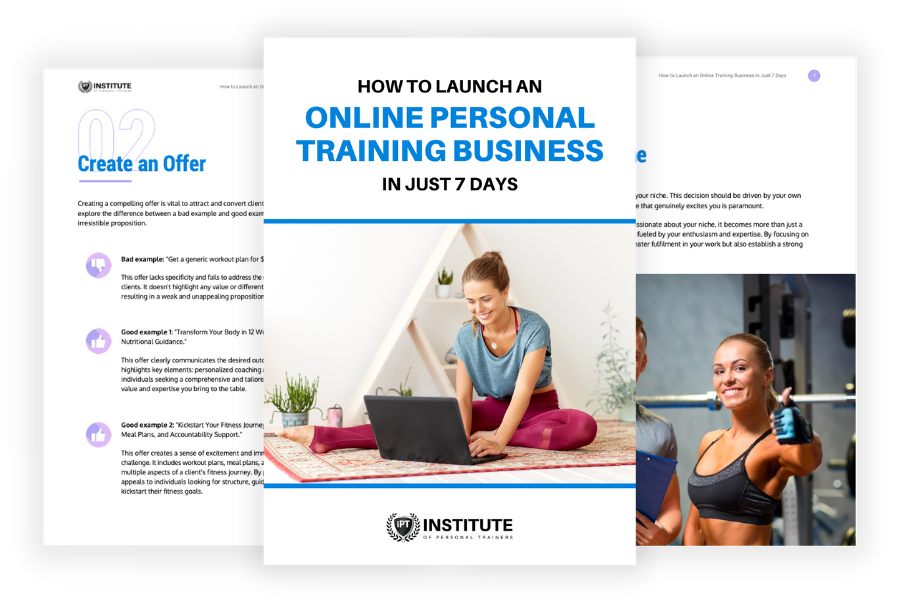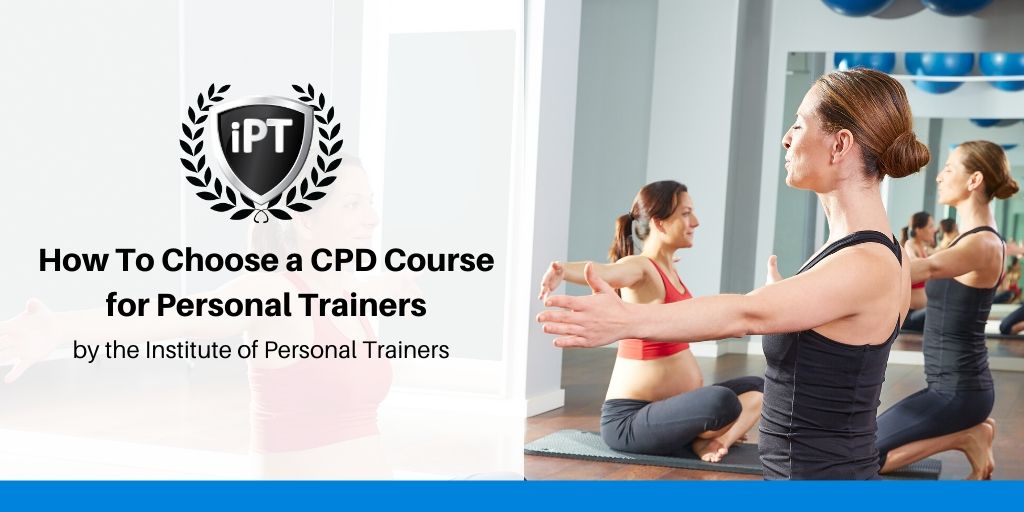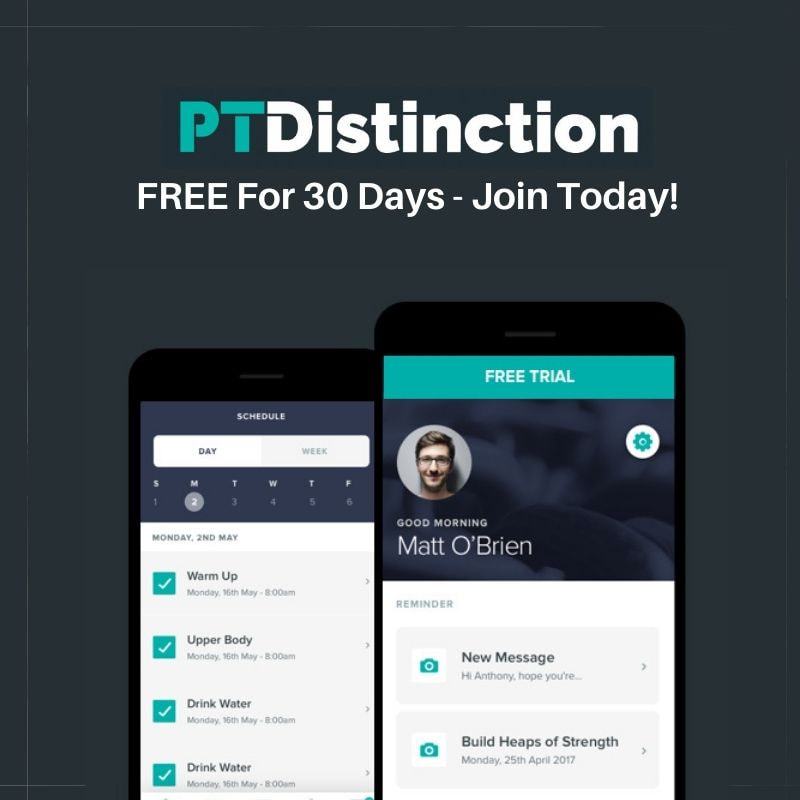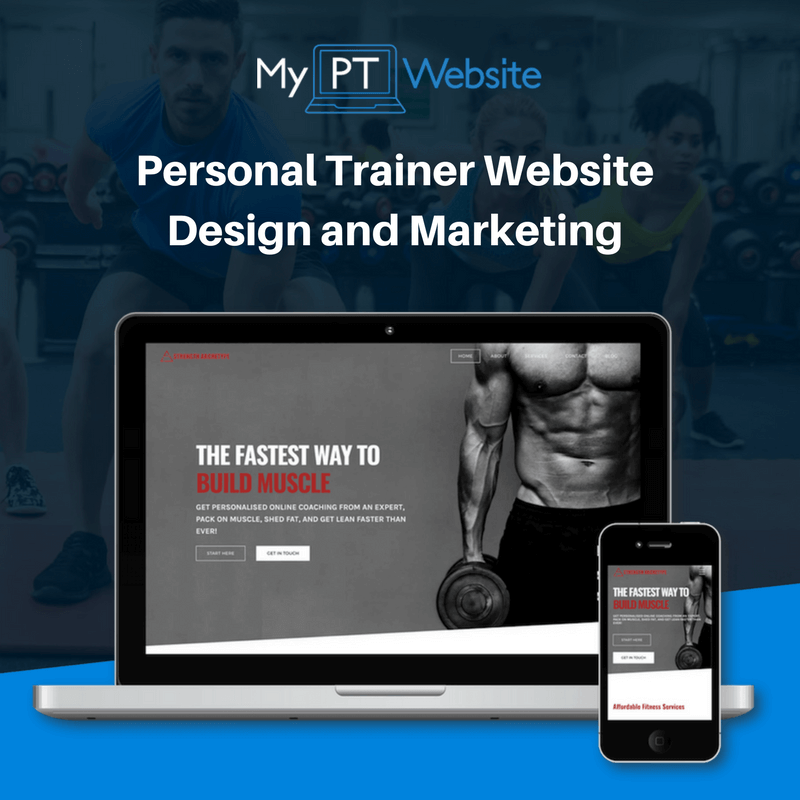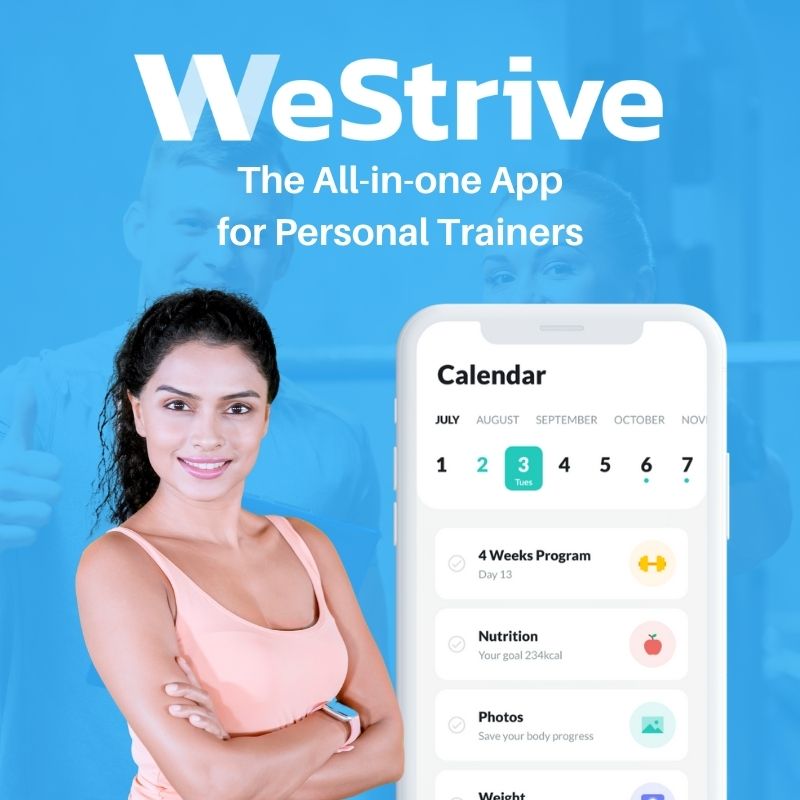|
FREE GUIDE: HOW TO LAUNCH AN ONLINE PERSONAL TRAINING BUSINESS
IN JUST 7 DAYS
✓ The new, better way of launching an online business
✓ The fastest way to create in irresistible offer ✓ A simple system to sell to clients who are interested |
|
Once you have your level 3 personal trainer qualification, you’re qualified to work with healthy adults. You’re able to teach them about exercise, demonstrate the correct form to movement safely, and give broad guidelines on nutrition in line with your government’s policy. When you decide to further educate yourself in the field, you can choose Continued Professional Development (CPD) courses in a wide range of topics within fitness and health. You don’t need to have any extra specialties, but they can be beneficial to help you to get better results for your clients. If you’re a newly qualified personal trainer, and you don’t yet know who you want to specialise in helping, that’s normal. You might not want to specialise until you have a broader experience of working with lots of different types of clients. Why Undertake Further Training?If your clients’ circumstances change, you may need a specialist qualification to continue training them. More knowledge and skills can help your clients thrive as they face their changing circumstances. After gaining some experience as a personal trainer, you may realise that you have a passion for helping a particular type of client with a specific goal. This could be an indicator that you want to specialise in that area, and that continued professional development is needed. With this approach, you can become an expert in that area. You’re catering to a much more targeted market who have a problem that you are uniquely qualified to solve, and this can allow you to command higher fees. If you'd like to become a successful personal trainer, you'd like your clients to feel delighted with the service they receive. They would also be pleased with the results you have delivered to them and become your raving fans. Telling everyone they meet about how you helped them to eliminate their pain and over-deliver your service. One of the biggest factors in your ability to get them these results is having the knowledge and expertise to help them progress - despite the specific limitations they face. Another reason to undertake CPD is that science is changing all the time. Fitness, nutrition and exercise science are no exception, with research being published every week. Understanding how these changes can affect your clients’ results may require further study. How to Choose a CPD Course?There are a couple of considerations when deciding which CPD courses are right for you. Let's look at the three main deciding factors. Who Do You Like to Work With? You could start by thinking about the clients that you’ve got - who you really enjoy helping. Those people whose sessions you look forward to, who make incredible progress, and who you spend extra time researching for. You might think about their demographics: age, sex, medical history. You could also consider their psychographics: personalities, interests, likes and dislikes. It’s likely that this client’s goals will give you a starting point for the specialities that you’d like to explore further. If you can help more clients that are just like your ideal client then getting extra qualifications in what they need help with will be powerful in attracting them to you. What Are You Already Good At? In other words which of your clients get the best results? Perhaps you have a client who has undergone a transformation because you supported their nutrition to achieve a body composition goal. Perhaps you’ve helped to rehabilitate a client after surgery and you’ve stayed up late excited to research their musculoskeletal needs? Or possibly you had a client whose circumstances simply changed while they were working with you and you adapted to their needs. What Does The Market Demand? Understanding the needs of your marketplace will be important in being able to sell your new qualification to your prospects. If you work in a commercial gym, there might not be much interest in a trainer who is qualified in Olympic Lifting - but that same skill in a CrossFit gym could be really valuable. Pay particular attention to the client goals which come up most often. They might include:
CPD Course Ideas for Personal Trainers If you want to be properly qualified - and insured - to offer personal training to a specialist population, you’re likely to need a recognised course by an accredited provider. Here are some of the most commonly sought CPD courses.
What Next?Consider the questions above, and write answers for each of them. Take your time, and really consider the list you’re making. You can even ask your current clients what they would benefit most from.
When your paying clients see you taking your own professional development seriously, they will respect that you will do whatever you need to in supporting them with their goals. You may also consider that if you’ve invested time, money and energy in becoming qualified in a new, specialist skill set, it may be time to increase your prices. We have a guide to help you to do that without upsetting your current clients. |
Our All In One Platform
Check out out all in one business & marketing platform for personal trainers!
WEBSITE BUILDER | FUNNELS |MEMBERSHIPS | SCHEDULING| EMAIL MARKETING| PAYMENTS| CRM | AI ASSISTANT | SURVEYS
Popular Articles
Trusted Partners
We work closely with some of the best service providers in the fitness industry.
Categories
All
|

